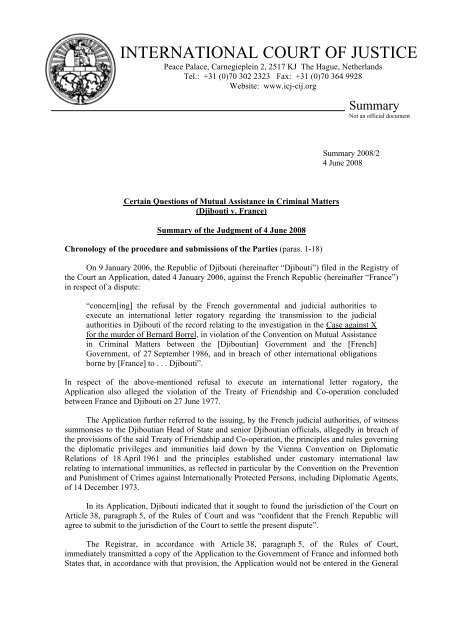The Function of Letters Rogatory in International Legislation: Key Insights
Letters rogatory serve as an essential instrument in international legislation, helping with cross-border legal support by enabling jurisdictions to formally request proof and activities from one an additional. What implications might these obstacles have for future lawful process?
Meaning of Letters Rogatory
In the realm of international law, letters rogatory act as official demands provided by a court in one jurisdiction to look for aid from a court in an additional jurisdiction. Letters rogatory. These demands are specifically substantial in cross-border legal proceedings, where the enforcement of a court's order or the gathering of evidence might be hindered as a result of jurisdictional constraints

The process generally needs the requesting court to verbalize the certain info or activity needed from the foreign court, adhering to the lawful protocols and conventions developed in between the jurisdictions included. As soon as released, the letters rogatory are transferred via diplomatic networks, which might consist of consulates or consular offices, to guarantee that the demand is identified and acted on by the foreign court. In general, letters rogatory exhibit the participating framework important for reliable global lawful procedures.
Historical Context
Although the method of letters rogatory has ancient roots, its formalization within the structure of international legislation arised substantially in the 20th century. Historically, such demands for judicial assistance were utilized in different legal traditions, consisting of Roman regulation, where they facilitated cross-border teamwork in legal matters. The principle obtained renewed attention with the surge of globalization and the raising intricacy of international legal interactions.
The mid-20th century saw the establishment of treaties and conventions that sought to standardize the process of letters rogatory. Significantly, the 1970 Hague Convention on the Taking of Proof Abroad in Industrial or civil Issues supplied an organized approach, improving the efficacy of these demands - Letters rogatory. This period marked a change from casual setups to an extra methodical structure, which attended to the challenges posed by varying national legal systems
As states ended up being extra synergistic, the requirement for reliable systems to gather proof throughout boundaries came to be evident, enhancing the function of letters rogatory in helping with international teamwork. Today, they continue to be a critical instrument for obtaining proof and ensuring that justice transcends nationwide borders, mirroring the developing nature of international law in action to global challenges.
Refine of Issuing Demands
The procedure of issuing letters rogatory commonly entails a number of essential steps created to make certain that requests for judicial support are clear, certain, and certified with both worldwide and domestic lawful criteria. Originally, a celebration seeking support has to prepare a formal demand that details the relevant truths of the case, the relief sought, and the specific proof or statement called for. This record needs to be crafted with precision to fulfill the legal requirements of the jurisdiction in which it will certainly be sent.
Adhering to the preparation of the request, it is sent to the ideal authority, usually a court or a marked governmental agency. This authority examines the request to guarantee it sticks to procedural standards and legal standards. Once authorized, the demand is transferred to the foreign territory through polite networks.
Upon invoice, the foreign court evaluates the request's conformity with its regional legislations and practices (Letters rogatory). If approved, it proceeds to carry out the demand, which may entail the issuance of subpoenas or the collection of evidence. Throughout this process, maintaining clear interaction in between the requesting and getting jurisdictions is critical to make sure successful teamwork and the fulfillment of the request
Obstacles and Limitations
Constraints and challenges often arise in the process of implementing letters rogatory, often stemming from differing legal systems and procedures between jurisdictions. One considerable obstacle is the differing criteria of admissibility for evidence, which can bring about difficulties in the acceptance of paperwork asked for via letters rogatory. Additionally, the lack of uniformity in legal terminology and definitions can develop misunderstandings, complicating communication between courts in various countries.
In addition, hold-ups prevail because of governmental processes, as the request might require to go through several layers of legal authorities before it is met. In some circumstances, the asked for jurisdiction may lack the required resources or desire to coordinate, better preventing the process. Language obstacles additionally add to challenges, as exact translation of lawful documents is vital for making certain that the designated message is conveyed without distortion.
Finally, sovereignty issues might occur, as some states hesitate to follow requests that they perceive as infringing upon their lawful freedom. These challenges highlight the intricacies intrinsic in using letters rogatory, demanding greater harmonization and teamwork amongst international legal systems to enhance their efficiency.

Influence On International Participation
Acknowledging the significance of letters rogatory in cultivating worldwide cooperation is vital, as these demands promote cross-border legal assistance and advertise collaborative initiatives in civil and criminal matters. By making it possible for one territory to officially request assistance from one more, letters rogatory develop a structured legal framework that improves the performance of international communication in between judicial authorities.
Making use of letters rogatory helps to establish mutual trust and regard among countries, which is crucial in an increasingly interconnected world. They offer as a mechanism not only for collecting proof yet also for guaranteeing that lawful procedures are promoted throughout boundaries. This is specifically important in combating transnational criminal offense, where the lack of check this site out ability to safeguard teamwork can threaten justice.
Additionally, the reliance on letters rogatory can enhance intricate lawful process, lowering delays and uncertainties in global examinations. The procedural safeguards fundamental in this process add to the protection of specific legal rights while promoting participation among states. Ultimately, the effect of letters rogatory on worldwide teamwork highlights their role as vital devices in the promo of justice, promoting a collaborative spirit that goes beyond nationwide boundaries and legal systems.
Conclusion
In conclusion, letters rogatory function as an important tool in worldwide regulation, facilitating cross-border legal help and teamwork. Regardless of inherent difficulties such as differing bureaucratic hold-ups and legal requirements, their standard treatments promote trust Clicking Here amongst countries. The ongoing evolution of these devices is important for boosting the performance of worldwide legal procedures, inevitably cultivating stronger partnership in both criminal and civil matters across territories. The relevance of clear communication in this context can not be overstated.
Letters rogatory serve as a crucial tool in global law, helping with cross-border lawful assistance by enabling jurisdictions to officially request proof and activities from one another.The procedure typically requires the requesting court to express the particular info or action needed from the international court, sticking to the lawful procedures and conventions established between the jurisdictions entailed. Historically, such requests for judicial assistance were made use of in various legal practices, consisting of Roman law, here are the findings where they promoted cross-border cooperation in legal issues.The process of providing letters rogatory normally entails several important steps made to guarantee that demands for judicial aid are clear, particular, and certified with both domestic and global lawful criteria.Additionally, hold-ups are typical due to governmental processes, as the demand may need to pass with multiple layers of legal authorities before it is met.